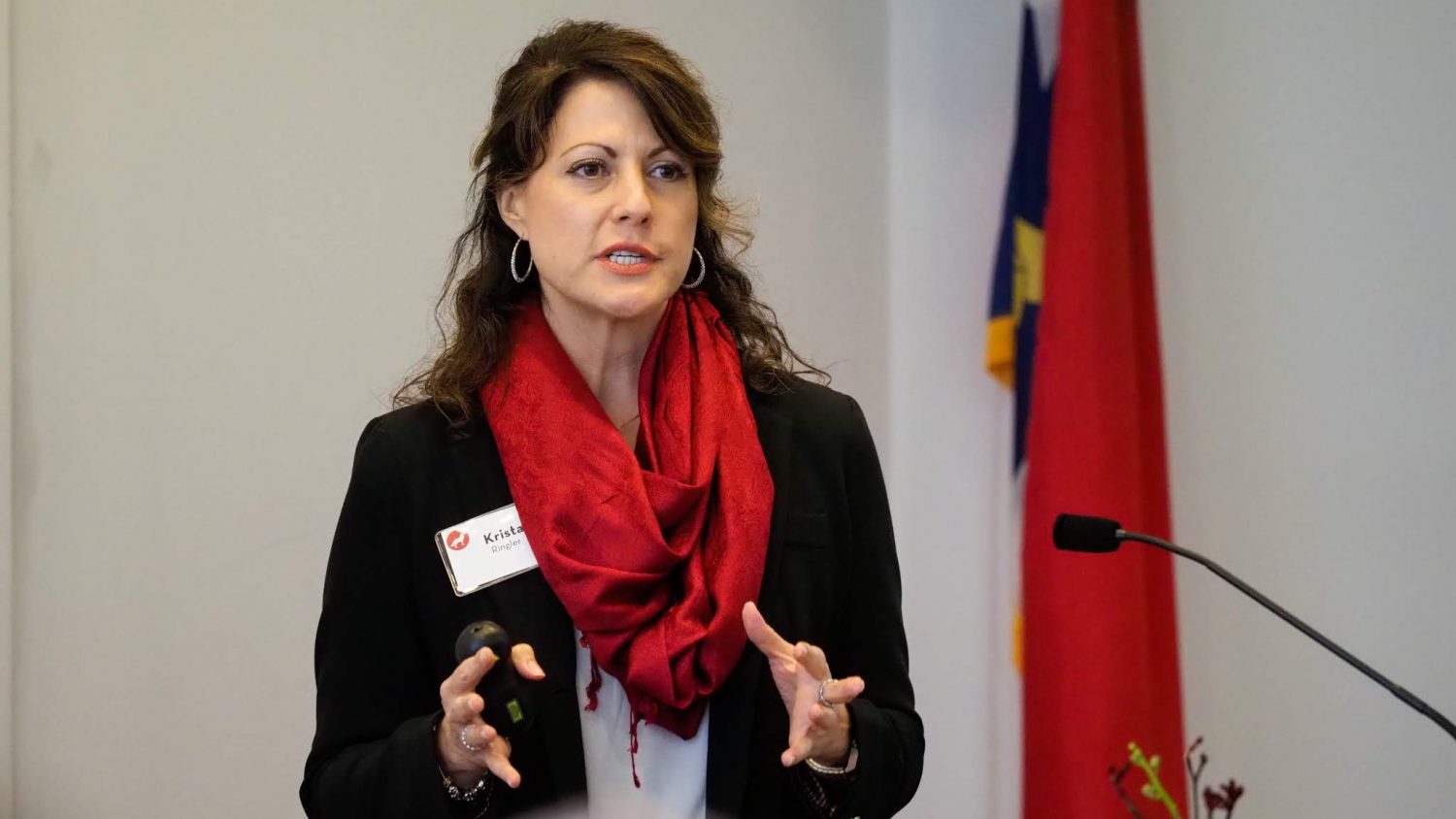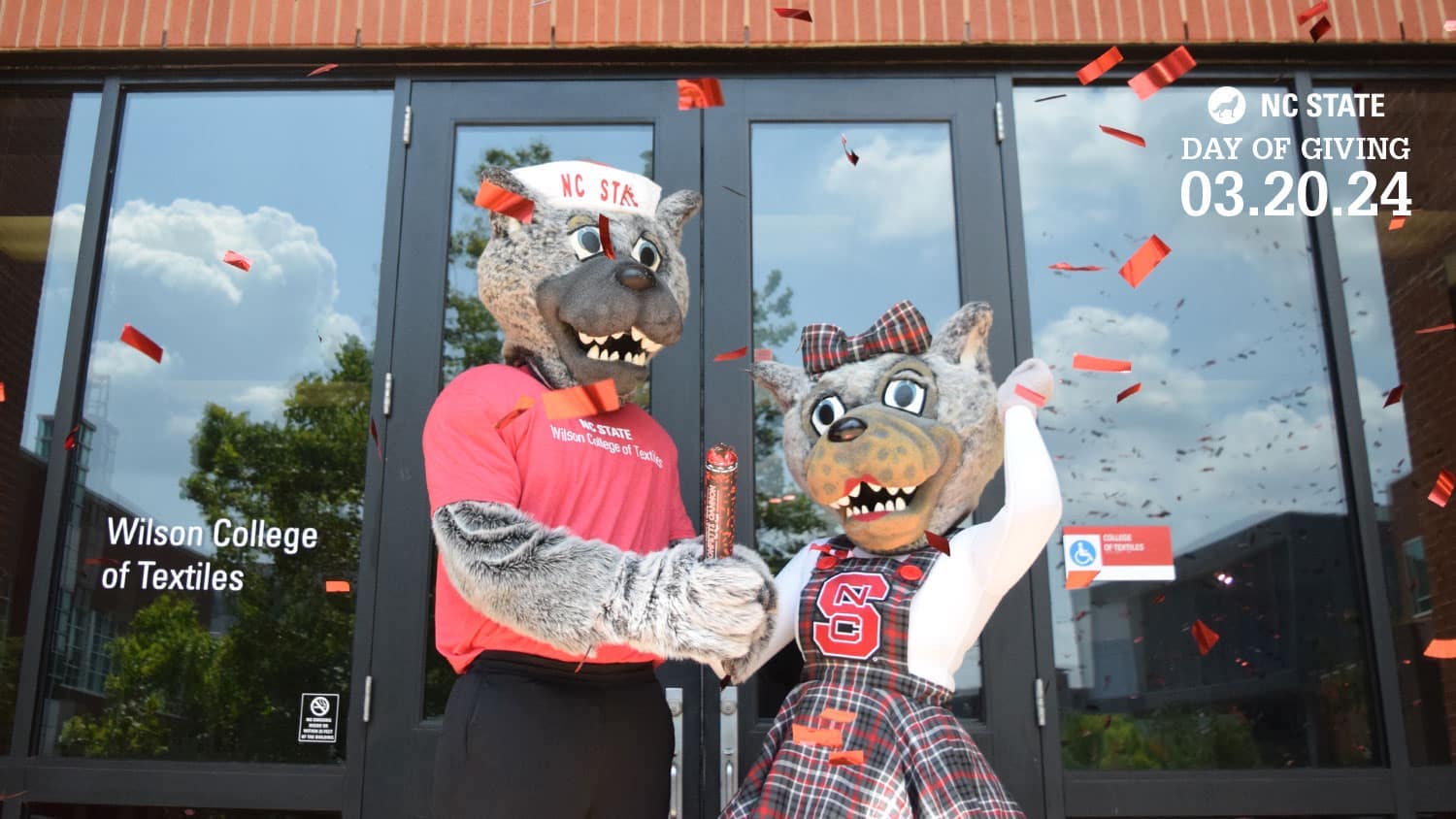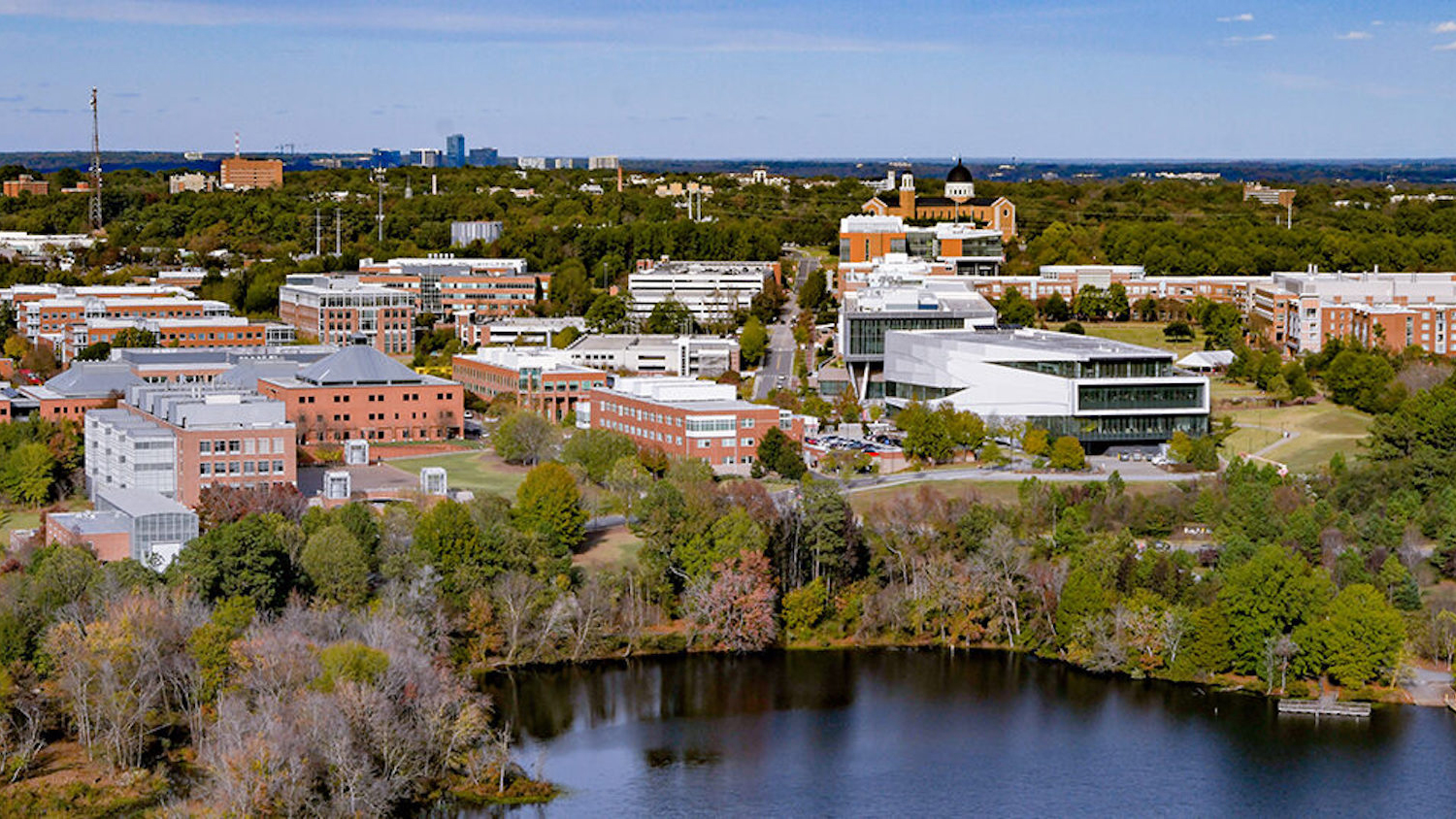Investing in Students: a Q&A with Krista Ringler

Krista Ringler is associate vice provost and director of scholarships and financial aid at NC State University. The Office of Scholarships and Financial Aid works to pull all the resources possible to present a financial aid and scholarship package to students, so they can make a decision to attend, remain enrolled at the university and successfully complete their degree.
How has the Think and Do the Extraordinary Campaign impacted your work?
First and foremost, it has given us a platform to share the story of financial need on our campus. We’ve had the opportunity to share information about what our students need and what education costs here at NC State. And beyond that, we’ve been able to provide support to an additional 2,000 students because of the Campaign so far. That’s been a big part of us being able to share in the success of the Campaign. Our goal is to make NC State accessible to qualified students regardless of a family’s financial circumstances.
What can the success of the Extraordinary Opportunity Scholarship Initiative mean for your office’s ability to support NC State students?
There is unmet need for our students here on campus. For students who show themselves as underresourced, we aren’t able to close that gap with the resources we have available currently. So dedicated resources for underresourced students at NC State can be a complete game-changer in how we award financial aid. Additional private support can improve where we rank in relationship to our peer institutions in terms of how much per student we’re able to offer in need-based financial aid. This makes a huge difference for students when they’re making that first decision, but it also allows them to remain successful. Being able to close that gap and meet those needs for students in every college at NC State will be incredible for supporting our students, and it will be an unbelievable investment in the university and in the state.
What does student need at NC State look like, by the numbers?
Affordability and access have always been priorities for our university, and we’ve done a tremendous job of controlling costs for our students, but we have to contend with inflation and other factors. Financial need is a number that represents the difference between the cost of attendance and a student’s ability to pay for college. More than 70% of our undergraduates apply for financial aid. More than 50% of our undergraduates qualify for some form of need-based aid, based on federal guidelines, with the average need topping $16,000 per student. We are able to meet nearly 73% of student need, although this does include the use of student loans. We pull from all available resources, including grants, scholarships and loans, to help students meet their needs. Even when we include student loans, we are not able to meet all of the need our students demonstrate. When we cannot meet their needs, they often turn to additional student loans, parent loans or family retirement savings if they have them. Or they choose another institution or delay their education.
What’s the most difficult thing about your job?
Unfortunately, every day in this line of work you encounter students who need just a little bit more help. We do the best we can to help as many as we can, but sometimes we just can’t do enough. That’s a very difficult part of this job. In North Carolina, the average family income is a little over $50,000 a year. When those families have children at home, it can be quite a financial undertaking to send a student to college. Maybe they had a great plan, but someone lost a job or there’s been an unexpected medical circumstance. Those types of experiences for students when we’re not able to close that gap can be very difficult. In recent years, there have been a lot of studies on food and housing insecurity for NC State students. When we see barriers to meeting basic needs, like the ability to access nutrition and pay your rent, it’s particularly troubling.
What do you want donors to know about student need at NC State?
Student need at NC State is real. We are in a different time than when many of us were enrolled in college. Today, a student really can’t work over the summer to pay for the subsequent year’s education. There was a time when a student could independently find a way to pay for college, and that’s not a reality anymore. Both the percentage of the undergraduate population demonstrating need and the average amount of financial need has increased over time, but the amount of available scholarships and grants has not kept pace. As I mentioned, more than 70% of students raise their hand and ask for assistance with financial aid, in whatever form we can provide. While we do the best we can with the resources that we have and we’re so thankful for all of them, there is unmet need. There is still some work to do and so much that we could accomplish if we can focus and really raise additional funds. Reducing reliance on student loans also puts our undergraduates in an optimum position to begin contributing to the economy immediately after completing their degree.
What’s the difference between the Extraordinary Opportunity Scholarship and Pack Promise?
Pack Promise is a financial aid initiative created by NC State in 2005 to reduce loan indebtedness for North Carolina residents who are from families whose incomes are at or below 150% of the poverty line. The focus of Pack Promise, which provides a package of grants, loans and work-study jobs, is narrower than the much broader intention for EOSI, which is intended to close the gap on unmet need for any North Carolina undergraduate. It’s exciting that, through this Campaign, NC State is building a complementary suite of resources to help more and more students in different ways. In addition to the Extraordinary Opportunity Scholarship Initiative, donors can give to Pack Promise, the Student Emergency Fund, Meal Plan Scholarships, supportive programs such as TRIO and more. One of the university’s priorities is increasing enrollment of students from rural and underresourced communities, and to meet that goal, we must be prepared to meet a variety of student needs.
How does financial support help ensure students can have an extraordinary experience while attending NC State?
Though students may receive support, many are also working to close the financial gap. And when they’re working a little bit more, they aren’t able to take part in some activities that could enrich their experience or could give them access to a career opportunity. For example, to get to that career opportunity, they might need an unpaid internship. For me, extraordinary opportunity means continuing NC State’s mission to increase access and to allow students to make a decision to be a part of this incredible campus and this incredible experience without finances being a major factor in that decision.
Create an Extraordinary Opportunity
- Categories:


